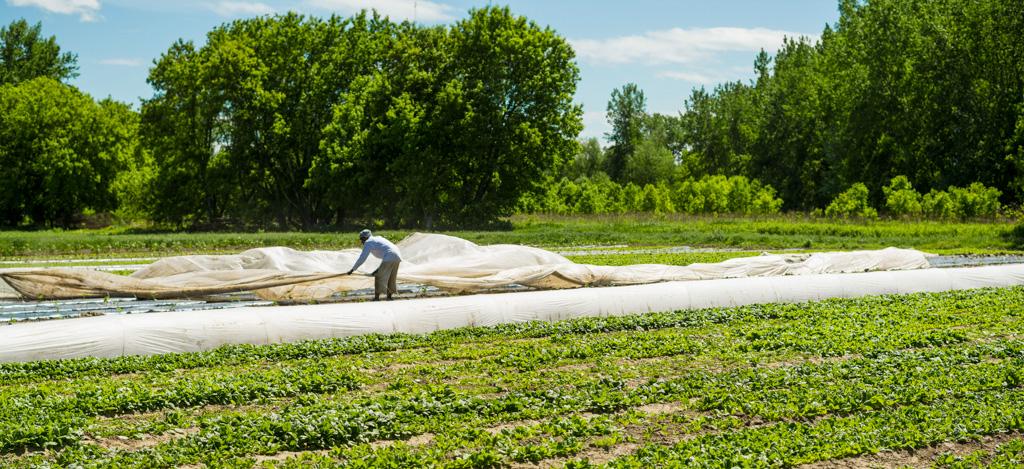Several NOFA-VT staff and interns attended last week's Food Systems Summit at UVM, a half-day-long series of short talks in the TEDTalks style. We were interested, of course, in the topic of food systems and excited to see how our state's land grant university - one of our key partners and a potentially huge force for food system change in VT and beyond - was interpreting "The Necessary (r)Evolution for Sustainable Food Systems." (You can watch a recording of the whole summit here, if you missed it.)
In discussing our impressions, we discovered a unifying theme about our favorite speakers: They were people doing real work, on the ground, in their communities. These were not necessarily the best-rehearsed talks or the presentations with the slickest graphics, but they were speakers animated by their passion, and who spoke to action rather than just fact.
Two of the talks in particular stood out for us - Tanya Fields' project to bring fresh produce to the Bronx in a refurbished bus, and Teresa Mares' presentation about helping migrant dairy workers create home gardens. Both addressed real issues in the current food system on two levels: lack of access to fresh produce, primarily, but also lack of access to meaningful and culturally appropriate food experiences.
Tanya talked about her failed attempt to start a farmers' market in her neighborhood, saying "That's not what the 'hood needed." Her neighbors weren't used to shopping at farmers' markets, and didn't have the time or motivation to change their habits. If they were going to buy more local, organic vegetables, they told her, the vegetables would need to pretty much show up at their doorsteps. So the mobile market was born. She underlined the importance of really listening to a community, rather than importing solutions.
The Huertas project that Teresa spoke about also addressed a community with low access to fresh produce, the dairy industry's migrant workers. She told us about a community struggling with low wages, lack of transportation, language and cultural barriers, and sometimes uncertain legal status. Home gardens improved the quantity and quality of their meals, as well as allowing them to grow familiar and meaningful foods that they may not be able to find in Vermont supermarkets. It is a solution that addresses the specific needs of a community that is a long way from home and unable to move freely here.
All of the presentations contained meaningful information and many introduced new ideas or insights, but not all of them had the impact of these two, which engaged new interns and experienced staff alike. Why?
I think we came to the summit wanting to be inspired. We already know the system is broken - learning more about its brokenness can be important, but it isn't inspiring. We wanted to see the revolution in action. I think that Tanya and Teresa spoke to the specific need of the audience - at least the NOFA portion of the audience! - in the same way that their projects spoke to the needs of their communities.
As NOFA explores this format of brief presentations for the featured speakers at our own conferences, it will be interesting for us to ask the question, "What does our community need now?"
Nourishing people, land, & justice through organic agriculture
LEARN MORE

